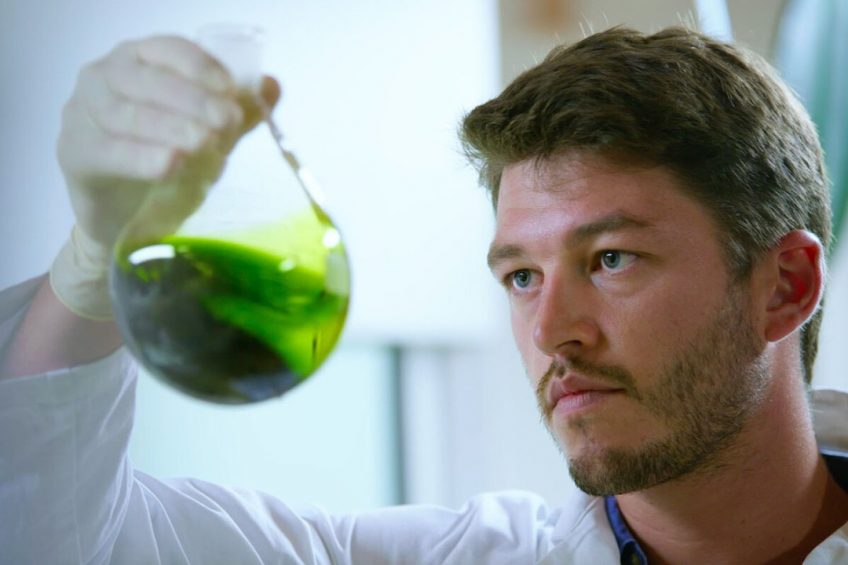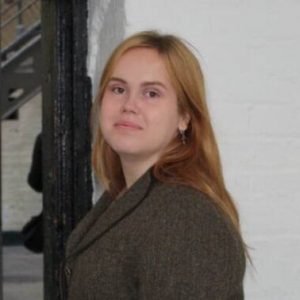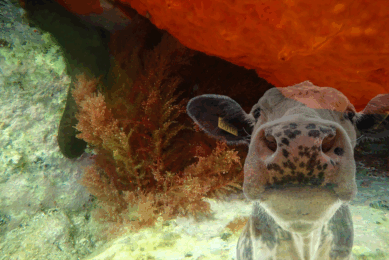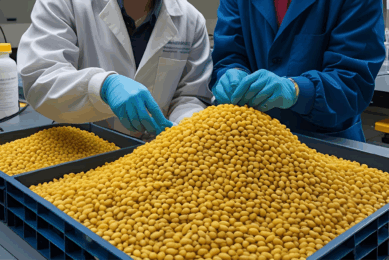Marine microalgae in biofilm for sustainable animal feed

inalve produces marine microalgae in biofilm in a bid to offer nutritious, sustainable protein and functional ingredients that support animal health and performance. CEO and co-founder Christophe Vasseur tells us more.
Established in 2016, French biotech company inalve produces marine microalgae in biofilm to cater to feed manufacturers and aquaculture farmers. According to CEO and co-founder Christophe Vasseur, who holds a PhD in marine biology, sustainability is key to his company. “Our company’s aim is to produce highly functional feed ingredients to feed animals in a more sustainable and natural way,” he says. “Looking at marine microalgae from the perspective of a marine biologist, I knew they were an important part of the marine food chain: the whole ocean relies on the nutrition they provide, and their health benefits work through the entire food chain,” he adds. “It is challenging to cultivate microalgae, but they have a huge potential, and we wanted to address this at an industrial level.”
Marine microalgae produced with minimal carbon footprint
Marine microalgae are sustainable in more ways than one, Vasseur explains: “50% of the oxygen we breathe comes from marine microalgae, they have a huge impact on a global scale. We produce them with a minimal carbon footprint,” he explains. The oxygen generated by cultivating marine microalgae would further contribute to the product’s sustainability. However, there are some challenges facing the company, also in this regard: “We have to carefully calculate and indicate our product’s sustainability.”
Marine microalgae has less CO2
“When comparing our product to available protein sources, such as soybean meal and fishmeal, we found that our product is 4 times less impactful in CO2 emissions than fishmeal, and we generate 9 times less CO2 than is generated in soymeal production,” Vasseur explains. His company, he elaborates, furthermore taps into the challenges that come with the world’s limited resources: “We, as humans, need to stop harvesting: to produce 1kg of fishmeal, you need to harvest fishes from the sea – this is simply not sustainable, and oceans are overexploited. Understanding these challenges lies at the basis of our company, and we aim to tackle it by replacing fishmeal and soymeal with marine microalgae,” he says.
What was the challenge?
“Our biggest challenge in this was proving that microalgae work, and to then determine how we could produce marine microalgae at the right volume, the right price, and with a constant focus on sustainability. We must also carefully consider how we compare to others: our ingredients should not only be nutritional, but they should also be highly functional, so we need to show that our product is as nutritious as fishmeal in terms of digestibility. Marine microalgae provide an animal-like protein, coming from a plant, with a proven immunomodulatory effect.”
Marine microalgae in biofilm a niche market
Vasseur and his team are working hard to prove the worth of their product, but Vasseur highlights, “We offer our product in Europe, but it is still a niche market, which is producing at a fraction of its capacity. We are evaluating our possibilities further down the road with industrial partners,” he says. Like others, inalve too was faced with the challenges of Covid-19: “We modified our daily work and work plan, which was very strange as we are a very agile company. When you are an international group, switching directions is a tough challenge, it takes a lot of effort to adapt to this new situation,” Vasseur says. The company did, however, succeed at achieving their overarching goal for 2020: “Our goal was to set up a pilot farm in Nice, in the south of France, a world premiere which is now up and running.”
Covid did not alter the company’s goal
Vasseur concludes by saying that even though Covid-19 did impact his company, it did not change the company’s goal. “By 2022, we will enter the demonstration phase to show the world that we can produce at the volume and level of sustainability that we claim to at our price point. Beyond Europe, we see our next potential in North America and are raising funds.”











